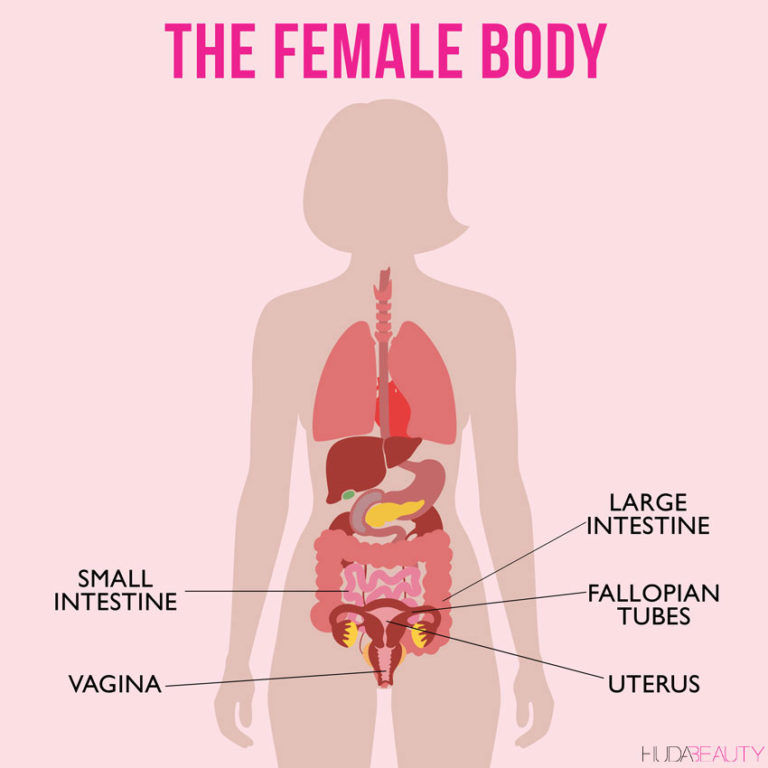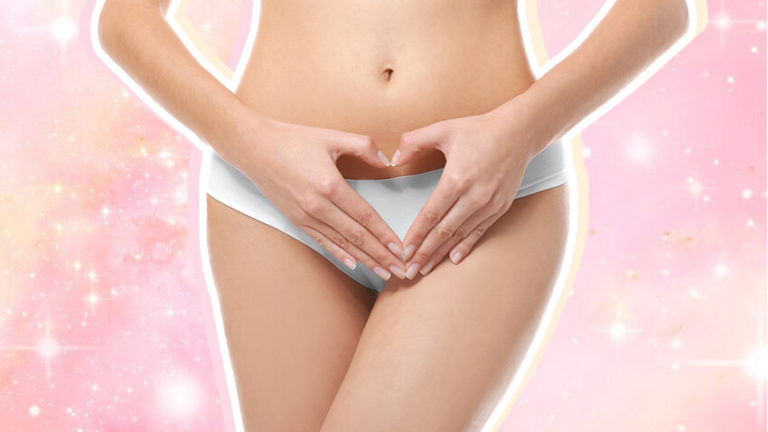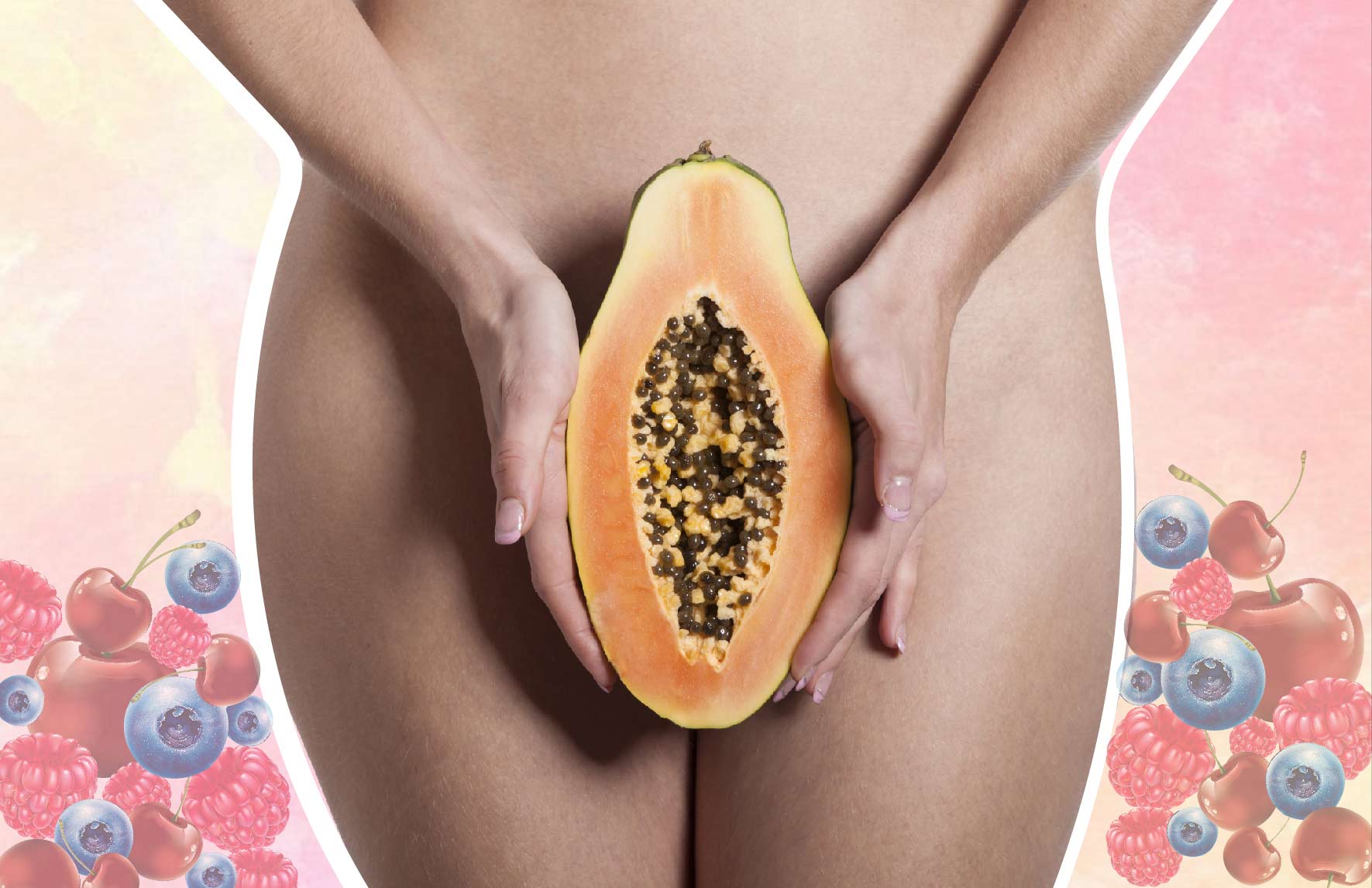The Ultimate Guide To Having A Healthy And Happy Vagina
 via Giphy
via Giphy
While many of us spend hours on our beauty regimen, one area of our body that doesn’t always get the attention it deserves is our vulva and vagina. However, knowing how to take care of “down there” is so important as it seriously impacts our health and our wellbeing.
To get the best information on looking after your vulva and keeping your vaginal healthy, we got in touch with two of the world’s top OBGYNs: Rebecca Booth, M.D Gynecologist, Co-Founder of VENeffect Anti-Aging Skin Care, and Mary Jane Minkin, Professor in the Department of Obstetrics, Gynecology, and Reproductive Sciences at the Yale University School of Medicine. We covered everything, from what you should be doing down there to the common mistakes you could be making.
1. Get to Know Your Body And Your Vagina

If you haven’t seen the latest wellness series to hit Netflix, The Goop Lab, then check it out and skip to episode three. The episode is centered around female pleasure (it’s a great watch, trust us), and the hour-long episode is centered around interviews and education with sex educator and author, Betty Dodson. She tells Gwyneth that one of the most important things you can do, as a woman, is to become better acquainted with your vulva. So, ladies, grab a mirror and take a look at your vulva.
While it may seem a little strange at first, it’s quite an empowering experience. It’s also important because it helps you understand what your vulva usually looks like, which ultimately will help you to be better aware of any changes in the future. Another crucial thing to note, everyone’s vulva looks different, period.
2. Be Prepared for Fluctuations in Your Vaginal Health and Learn How to Handle It
When it comes to your body, knowledge is power. Understanding how your body changes is super important as it allows you to understand what’s happening. This is especially important when it comes to your vaginal health as it can be quite confusing or worrisome when something changes. Plus, as it’s such a personal topic, we realize that it can feel more difficult to ask others for advice.
However, according to Dr. Booth, most of us aren’t familiar with these changes: “Women tend to think that after puberty the vagina will always be the same, but many things cause changes in the vagina, such as the hormonal cycle, post-partum state, nursing, perimenopause, and menopause.” Hormones play a large role in your life, from your emotions and skin to how your body might look and feel during different stages of your cycle.
Dr. Booth tells us, “Each day of the menstrual cycle is a reflection of the different levels of the “big three” hormones: estrogen, progesterone, and testosterone. Not only are we designed to have these levels fluctuate, but their relationship varies each day as well, influencing how we look and feel. The key is to understand why they fluctuate and what we can do to take charge of these variations.” To find out more about your hormone cycle, read this.
 Dr. Booth also explains that it’s not just hormonal changes, “Even becoming sexually active or changing the pattern of sex can alter the vagina. Many women are not aware that diets high in carbohydrates and processed foods are very negative for vaginal balance.”
Dr. Booth also explains that it’s not just hormonal changes, “Even becoming sexually active or changing the pattern of sex can alter the vagina. Many women are not aware that diets high in carbohydrates and processed foods are very negative for vaginal balance.”
3. Don’t Be Afraid of the GYNO

If the idea of a visit to the OBGYN makes your cringe, you’re not alone. And while we understand it can feel awkward, once you get over that feeling, it can be an empowering and informative experience.
Dr. Booth explains, “OBGYN is the only specialty of medicine that is founded on wellness, not illness. Your gynecologist is your educator, diagnostician, protector, and confidante. As caregivers of women, we are proud to support the intricacies and vulnerabilities of our unique feminine physiology… There is no time to be embarrassed!” Dr. Minkin adds, “Probably most importantly, your gynecologist will not be judging you, so don’t be afraid of telling her (or him) everything, and ask about everything.”
We recommend visiting the OBGYN for an annual check-up. And ladies, don’t forget to get yearly pap smears once you’re sexually active or turn 21.
4. Don’t Overdo It
 via Giphy
via Giphy
When it comes to your vaginal health, both Dr. Booth and Dr. Minkin advise taking a less is more approach. Dr. Booth explains, “The vagina’s health is protected by its own environment and microbiome – a community of beneficial organisms that maintain the self-cleaning system that’s remarkable and unique in the body.”
Dr. Booth points out that one of our biggest mistakes is to over-clean, “The tendency to feel that the vagina must be aggressively “cleansed” such as douching or using fragrant washes is highly culturally dependent. Many women have gathered information from family members or friends that douching is needed and expected, and the marketing of the products is misleading. The facts prove that such practices do more to harm the self-cleaning nature of the vagina than to help it.”
Posts You'll Love:
Dr. Mary Jane Minkin explains that when a problem does occur down there, it’s “usually a result of an imbalance of good bacteria and bad bacteria in the vagina.” A healthy vagina has a large quantity of a type of “good bacteria” named lactobacilli, a probiotic strain that protects your vagina from damaging bacteria.
Dr. Minkin continues, “The major advice I would give on maintaining a healthy vagina is to not do too much to it! Try not to douche as douching may remove this “good guy” bacteria present, and we would like to keep a healthy vaginal flora.”
Another factor that needs to be maintained is your vaginal pH level. To help your body fend off harmful bacteria, fungus, and other pathogens, your vagina must maintain a low pH level; anywhere between 3.8 and 4.5, which is quite acidic. Hence why Dr. Minkin also suggests avoiding “Heavy-duty soaps as many of them are quite basic and believe it or not, a happy vagina is an acidic vagina. One easy way to restore a good pH (acid balance) is to use a gel, like repHresh, which is acidic and will help get you back to a good state if things are a bit off.”
5. Eat with Your Vagina in Mind

While most people are aware of how their diet affects their weight and skin, did you know it also affects your vaginal health and can even enhance your fertility? One reason why Dr. Booth says to “Keep your vagina healthy and balanced with a diet loaded with organic plant protein, organic fermented foods (such as kefir, yogurt, kimchi, and sauerkraut), as well as prebiotic foods that support a healthy vaginal flora (such as leeks, lentils, radishes, and quinoa).”
Dr. Minkin also adds that you should “Avoid a lot of heavy-duty sugars. Yeast loves sugar, and you don’t want to encourage their growth.”
6. Try Kegel Exercises
 via Giphy
via Giphy
Kegel exercise (when you exercise your pelvic floor) can not only improve your vaginal health but also sex, which in turn, can even help boost your skin and give a healthy glow. Dr. Booth explains, “Kegels are a simple way to strengthen the pelvic floor, increase blood flow to the area, as well as give you more vaginal and bladder control.” You can do Kegels pretty much anywhere and no one will know! Find out more about practicing Kegels, and their benefits here.
Posts You'll Love:
7. Learn How to Tackle Dryness
According to Dr. Booth, “The most common vaginal problem I see is dryness causing pain with intercourse. Many women don’t realize that the elasticity of the vaginal skin declines with the biological clock. Mother Nature does not support the lubrication of the vagina as fertility winds down. From nature’s standpoint, vaginal lubricity is to facilitate reproduction, and this has a time limit that can catch us off-guard.”
But don’t worry, there are plenty of things you can do. Dr. Booth says “The treatment is integrative: good nutrition, hydration, foods, and supplements high in omega 3 oils can help the body increase in natural lubricants. In menopause and perimenopause, topical vaginal estrogen products are incredibly effective.”
“Treating the dryness with moisturizers, like Replens Long-Lasting Estrogen Free Vaginal Moisturizer, $12, or Revaree, $55, can be helpful, and again, using some repHresh can be helpful as well. And if the dryness persists and these over the counter remedies aren’t helping, you should see your gynecology provider, who can prescribe some topical estrogen therapies,” adds Dr. Minkin.
8. Be Wary of Hair Removal
Dr. Booth says you should “Try to limit shaving of the vulvar hair. The hair acts as a natural barrier, and over-shaving can cause inflammation and reduce the protection to the delicate tissues.”
9. Use Gentle Products

When it comes to female products, Dr. Booth advises “Avoiding fragranced “hygiene” products that advertise to clean the vagina. The vagina is self-cleaning, and fragrance and certain preservatives can be harmful to the delicate vaginal microbiome. Avoidance of antibiotics unless absolutely necessary, especially vaginal lubricants that may be anti-microbial or have harsh preservatives.” So always look for gentle, fragrance-free products. Find our fave vulva-friendly products here.
10. Choose Your Underwear Wisely
Last but not least, choose your underwear wisely: “Wear natural fiber undergarments such as 100% cotton or silk that allow the vaginal and vulvar tissues to “breathe,” encouraging natural balance in this delicate area,” says Dr. Booth.
Dr. Sherry Ross, Women’s Health Expert and Author of She-ology: The Definitive Guide to Women’s Intimate Health. Period agrees: “Thongs may look and feel sexier compared to everyday underwear but their anatomically-unfriendly design makes it easier for harmful bacteria of the colon to find their way into the vagina and bladder increasing the risk of infection. Comfortably fitting cotton underwear that properly covers your female anatomy well, including the vagina and rectum, tends to be the best bet for the vagina in the long run. Finding the most comfortable underwear should be every woman’s mission and priority for vaginal health and wellness.”
For more female wellness information, find out what your discharge is trying to tell you.























Leave a comment